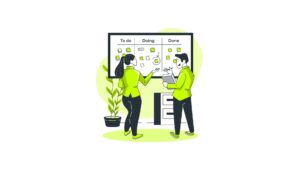Accept Cookies & Privacy Policy?
We use cookies to ensure that we give you the best experience on our website. If you continue to use this site we will assume that you accept and understand our Privacy Policy, and our Terms of Service.
In today’s digitally driven world, where cyber threats lurk around every corner, securing your organization’s data and systems is no longer an option, it’s a necessity. Enter the dynamic field of security testing, a crucial practice that identifies vulnerabilities before malicious actors can exploit them.
But how do you ensure your team possesses the expertise to effectively safeguard your digital assets? Here’s where security testing certifications come into play. These valuable credentials validate an individual’s knowledge and skills in performing security assessments, identifying weaknesses, and recommending robust security measures.
Enhanced Career Prospects: Earning a coveted security testing certification sets you apart from the competition and demonstrates your commitment to professional growth in this high-demand field.
Increased Credibility: These certifications showcase your expertise to potential employers and clients, boosting your credibility and marketability as a security professional.
Expanded Knowledge Base: Security testing certifications offer a structured learning path, equipping you with in-depth knowledge of security principles, tools, and methodologies.
Staying Current: The cybersecurity landscape constantly evolves, and these certifications help you stay updated with the latest threats and mitigation strategies.
Building a Strong Security Team: By encouraging your employees to pursue relevant certifications, you foster a team with a comprehensive understanding of security testing practices.
Improved Security Posture: Certified professionals can assess your systems more effectively, leading to the identification and remediation of potential vulnerabilities.
Demonstrating Compliance: Certain certifications align with industry standards and regulations, helping you demonstrate compliance with security mandates.
Reduced Risk and Costs: By proactively identifying and addressing security risks, organizations can avoid the financial and reputational damage associated with cyberattacks.
With a diverse range of security testing certifications available, choosing the right one can be overwhelming. Let’s explore some popular options catering to both individual testers and organizational needs:
CompTIA PenTest+: This vendor-neutral certification provides a solid foundation in penetration testing fundamentals, making it a great starting point for aspiring pen testers.
Certified Ethical Hacker (CEH): This globally recognized credential focuses on ethical hacking methodologies used by security professionals to identify vulnerabilities.
GIAC Penetration Tester (GPEN): Offered by the SANS Institute, GPEN is a highly respected certification that delves deeper into advanced penetration testing techniques.
Offensive Security Certified Professional (OSCP): This hands-on certification emphasizes practical skills by requiring candidates to perform real-world penetration testing exercises.
Certified Information Systems Security Professional (CISSP): While not solely focused on testing, CISSP provides a broad understanding of information security and is a valuable asset for security professionals at various career stages.
International Organization for Standardization (ISO) 27001: This internationally recognized standard outlines best practices for information security management, including security testing practices.
Payment Card Industry Data Security Standard (PCI DSS): Organizations handling credit card information must comply with PCI DSS, which mandates penetration testing to identify vulnerabilities in their cardholder data environment.
Health Insurance Portability and Accountability Act (HIPAA): Healthcare organizations must adhere to HIPAA regulations, which require them to conduct regular security assessments, including penetration testing.
So, which certifications should you or your organization prioritize? Consider these factors:
Individual career goals and experience: For individual testers, choose a certification that aligns with your career aspirations and current skill level. Beginners might benefit from CompTIA PenTest+, while experienced professionals could pursue OSCP or GPEN.
Organizational security needs: Organizations should consider the specific security risks they face and choose certifications that address those vulnerabilities. For instance, an e-commerce platform might prioritize PCI DSS compliance, while a healthcare organization might focus on HIPAA regulations.
While certifications are valuable tools, real-world experience and continuous learning are key to success in security testing. Stay updated with emerging threats and participate in professional development opportunities to stay ahead of the curve.
One of the key ways to demonstrate and validate robust security control mechanisms is through SOC 1 and SOC 2 reports. These reports, conducted by independent CPAs, provide invaluable insights into an organization’s internal controls over financial reporting and broader operational processes.
Purpose: SOC 1 reports are tailored to assess an organization’s internal control over financial reporting. These controls are specifically designed to guarantee the accuracy and integrity of financial statements.
Essential for organizations whose operations directly impact their clients’ financial reporting.
SOC 1 Type I: Conducted at a specific date, focusing on the existence of controls.
SOC 1 Type II: Rigorous audits over an extended period, evaluating the effectiveness of controls.
Purpose: SOC 2 certifications extend beyond financial controls to encompass a broader spectrum of security parameters, including availability, security, processing integrity, confidentiality, and privacy.
Essential for organizations engaged with IT vendors or services, ensuring comprehensive security measures.
Trust Service Criteria (TSC):
SOC 2 Type I: Validates the existence of controls.
SOC 2 Type II: Provides assurance on both control existence and effectiveness over time.
Comprehensive Coverage: SOC 1 and SOC 2 reports offer insights into an organization’s financial and non-financial controls, respectively, ensuring a holistic approach to security testing certification.
Enhanced Assurance: SOC 2 Type II certifications provide a deeper understanding of how well an organization safeguards and manages data over time, offering enhanced assurance to stakeholders.
Independent Verification: Conducted by independent CPAs, SOC reports offer credibility and reliability, instilling confidence in clients and partners alike.
Investing in SOC 1 and SOC 2 reports not only strengthens an organization’s security posture but also fosters trust and confidence among stakeholders. By obtaining these certifications and prioritizing security testing, organizations can proactively mitigate risks and uphold their commitment to data integrity and confidentiality in the digital world.
Remember, security testing is an ongoing process, not a one-time event. By leveraging the combined power of certified professionals, strategic planning, and continuous improvement, you can create a robust defense against evolving cyber threats and ensure a secure digital landscape for your organization.
Thought Frameworks is a U.S. based leading QA and software testing organization that’s been in business since 2009, armed with the ultimate solutions for all your software’s QA testing challenges. Having headquarters both in California, USA, and a fully functional well equipped QA Test Lab in Bengaluru-India, that delivers premium QA and QC services endlessly across different Industry domains and niches. An ISTQB Silver Partnered Company, our superhuman test team heroes have delivered numerous successful QA and QC projects for clients across the globe. Get powered by our deep dive bug hunting process that helps your software in clocking release cycles on time while delivering excelling quality and functionality.

So picture this: You’re the air traffic controller of a chaotic airport where the planes (developers) don’t always listen, the passengers (stakeholders) want to change destinations mid-flight, and the weather (unforeseen blockers) is always unpredictable.

Imagine a world where testing is no longer a bottleneck. No more endless cycles of manual effort, no more missed defects due to human fatigue, and no more panic at the eleventh hour before a major ERP rollout.

Imagine a world where testing is no longer a bottleneck. No more endless cycles of manual effort, no more missed defects due to human fatigue, and no more panic at the eleventh hour before a major ERP rollout.

Let’s talk about GenAI and testing in 2025—the wild west of technology where machines are not just smart, but scary smart. GenAI (that’s Generative AI for the uninitiated) is running the show everywhere. It’s writing poetry, designing ads, debugging code, and probably plotting to take over my job as I write this blog.

Ah, 2024—you’ve been a year, haven’t you? For us at Thought Frameworks, this year wasn’t just about running the usual QA/QE playbook. Nope, we went full throttle into the future—tinkering, testing, and transforming everything from ERP systems to the ever-evolving world of SAP, GenAI, and security testing.

So, you’re deep in the ERP trenches and trying to figure out the best approach between NetSuite and Oracle EBS. You’re certainly not alone! We can help break down how these two ERP giants stack up when it comes to ensuring systems run like clockwork but without the overload.
Accept Cookies & Privacy Policy?
We use cookies to ensure that we give you the best experience on our website. If you continue to use this site we will assume that you accept and understand our Privacy Policy, and our Terms of Service.
| Cookie | Duration | Description |
|---|---|---|
| cookielawinfo-checkbox-analytics | 11 months | This cookie is set by GDPR Cookie Consent plugin. The cookie is used to store the user consent for the cookies in the category "Analytics". |
| cookielawinfo-checkbox-functional | 11 months | The cookie is set by GDPR cookie consent to record the user consent for the cookies in the category "Functional". |
| cookielawinfo-checkbox-necessary | 11 months | This cookie is set by GDPR Cookie Consent plugin. The cookies is used to store the user consent for the cookies in the category "Necessary". |
| cookielawinfo-checkbox-others | 11 months | This cookie is set by GDPR Cookie Consent plugin. The cookie is used to store the user consent for the cookies in the category "Other. |
| cookielawinfo-checkbox-performance | 11 months | This cookie is set by GDPR Cookie Consent plugin. The cookie is used to store the user consent for the cookies in the category "Performance". |
| viewed_cookie_policy | 11 months | The cookie is set by the GDPR Cookie Consent plugin and is used to store whether or not user has consented to the use of cookies. It does not store any personal data. |
Ready for a Quality Software?
Let’s Dig Deep Into Your Thought!